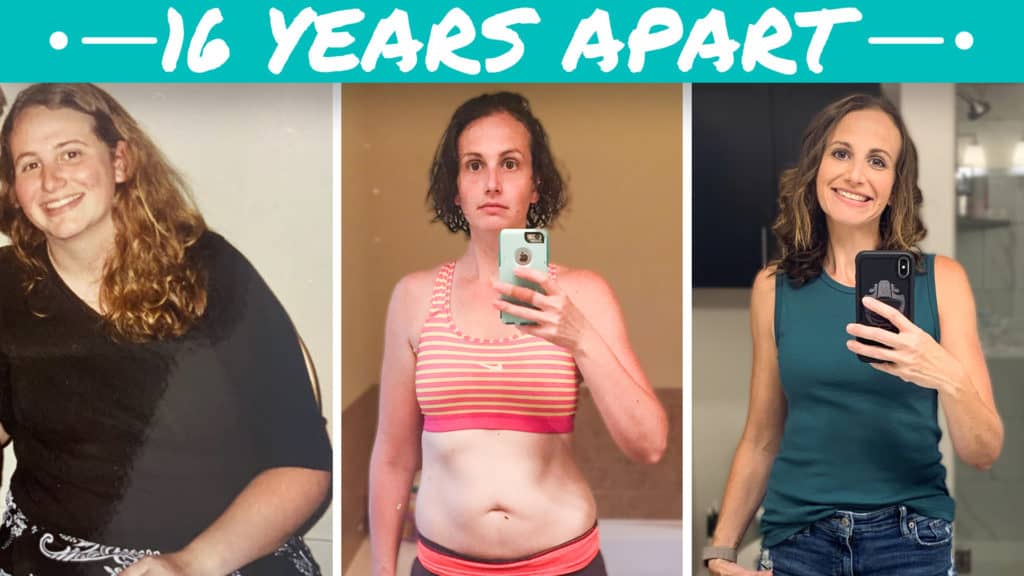Are you trying to lose weight or maintain your progress? In this post, I share my Intermittent fasting before and after pics, as well as my experience. If you’re on the fence about IF, then this post is for you!
If you’ve been following my fitness journey, you've probably already seen at least one of my intermittent fasting posts.
I’m passionate about it because it changed my life. Not only is it scientifically proven to help with weight loss, boost energy, cognitive function, and metabolism, it’s also super simple to do! No fancy equipment is required.
It may not be as easy initially, and it will take some getting used to for beginners. But once you learn to stick with it intentionally, the results can be significant. And I like big results!
Intermittent fasting, coupled with my love for clean eating, truly changed the game. Aside from weight loss and maintenance, IF has helped lessen my inflammation and cravings and improve my energy.
So if you’ve wanted to learn more about IF and see if it’s a fit, read on further!
Keep in mind that it’s always best to consult your doctor or expert nutritionist if you have current medical issues or are using maintenance or medication.

How Long Does It Take For Intermittent Fasting To Work?
After beginning your intermittent fasting routine, you could see changes in your body in as little as ten days. More significant weight loss is seen after two to ten weeks.
Keep in mind that your overall health (and how your body feels) is more important than the speed of your weight loss. Quick results are nice, yes. But keep the long game in mind! Sustainability is key.
It's also essential to have some patience with yourself. My journey had a lot of ups and downs — to the point where I got obsessed with the scale. It was only after my son Hunter's birth that I finally found balance and self-acceptance.
We're not perfect, and our weight loss journeys won't be either. That's OK.

How Much Weight Can You Lose In A Month With Intermittent Fasting?
Adults can lose anywhere between 0.55 to 1.65 pounds per week (or 0.25 to 0.75 kg) while intermittent fasting. That's pretty fast! It's no crash diet, either, and is healthy if complemented with a proper diet, healthy habits, and exercise.
Again, focus on developing healthy habits over speed. There was a time when I limited myself to 1,100 calories per day. Yeah, that was WAY too little for what my body needed. At one point, when I was most anxious about food, I lost half a pound a day.
Anxiety, I've learned, is one way that my body says, HELLO! WHAT ARE YOU DOING?! I lost too much weight, wasn't sleeping well, and didn't even look healthy (because I wasn't).
After learning all about macros and healthy weight loss, I rely on how I feel instead of obsessing over calories. I made sure to gain muscle, eat clean, and develop healthy habits.
Here's the beautiful thing: I've never felt stronger, prouder, and sexier (after four kids!).

What Happens To Your Body When You Fast For 16 Hours?
When you fast for 16 hours, many things happen to your body. I’ve broken it down into 2 phases.
Upon reaching 4-16 hours:
- You reach the breakdown phase (a.k.a, the catabolic phase).
- All the extra nutrients in your body are released from storage and used for energy.
- How quickly you reach this stage is based on what you ate a few meals before your fast started. (Having lots of starch and carbs could slow down the process compared to protein and fats.)
After 16 hours:
- Ketosis usually happens at this time, which is when your body releases fat and converts it to energy (your body produces ketones which are used as fuel).
Other things that happen in our bodies when we fast
- Insulin levels decrease: This helps our body use stored energy from our long-term fat storage (in the form of glycogen in the liver) rather than from the food we eat.
- Levels of Human Growth Hormone (HGH) increase dramatically: This can positively affect muscle growth.
- Mental acuity and cognition improve: This happens as less blood flow surges to the stomach to digest recently consumed food.
- Energy levels increase: As the body uses stored glycogen for energy.
- Autophagy occurs: Old and dysfunctional cells are broken down and repaired.

How Much Weight Can A Woman Lose On Intermittent Fasting?
Over time, women can lose a significant amount of weight on intermittent fasting. Of course, this does vary per person depending on SO many health and lifestyle factors (our hormones, diet, stress, etc.).
One study conducted in 2018 found that overweight adults had an average weight loss of 15 lbs over 3 to 12 months. Want more info on intermittent fasting for women? Check out my complete guide here.
Is Intermittent Fasting Effective Without Exercise?
Yes, intermittent fasting can still work without exercise as long as you pair it with clean eating, portion control, and enough sleep. Having a healthy lifestyle allows it to work!
I'm an advocate of exercise or getting some movement daily. Daily exercise links to improved mental health, which helps in all aspects (including weight loss).
Should you choose to exercise alongside intermittent fasting, here's what I suggest:
- Always listen to your body. Never force a workout if you feel light-headed or weak. Remember that the type of exercise you do matters.
- Stay hydrated throughout your fast and workout. When I drink lots of water, it's easier to push my breakfast after my workout in the morning.
Exercise doesn't have to be complicated! Here's How Many Daily Steps You Need For Weight Loss

Does Sleeping Count As Fasting?
Yes, sleeping during your intermittent fast counts as fasting! Because you’re asleep, you’re not consuming any calories which puts you in a completely fasted state. Easy enough!
The 16/8 method IF method involves fasting for 16 hours per day and having your eating window reduced to 8 hours.
This is usually the easiest fast for beginners because it’s as simple as not eating anything after dinner and skipping breakfast.

More Helpful Posts On Intermittent Fasting
Looking to learn more about intermittent fasting? Here are posts I’ve made through the years during my weight loss and maintenance journey! I hope these help with yours too:
- Intermittent Fasting For Weight Loss
- What Is Intermittent Fasting? | Can It Help You Lose Weight?
- Do Vitamins Break A Fast?
- 9 Intermittent Fasting Mistakes Beginners Make (And How To Avoid Them!)
- Why Am I GAINING Weight With INTERMITTENT FASTING: 4 IF Mistakes That Can Lead To Weight Gain
- Intermittent Fasting Meal Plan | How To Create Your Eating Routine
This post contains affiliate links for products I use regularly and highly recommend.



Kelly
Really good job on the weight loss, you look great. I absolutely love intermittent fasting, I'm currently doing 16:8 but going to push to 18:6 after the new year.